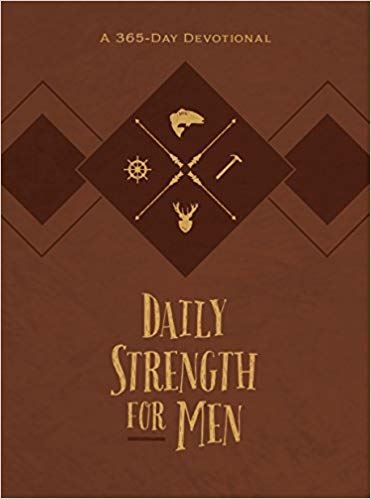Are There Important Stories Behind My Favorite Worship Songs?

If your church is like many, then it has replaced hymns (accompanied by an organ or piano) with worship songs performed and led by a praise band.
But you may still be singing hymns – classic hymns written decades or even hundreds of years ago – at least part of the time. That’s because some of today’s popular worship songs have famous hymns as their foundation.
And behind these songs are some really great stories.
Here are four of them:
Photo Credit: ©GettyImages/arkira

1. How Great Thou Art
A storm can inspire fear. It also can inspire a famous hymn such as "How Great Thou Art."
In 1885, Swedish minister Carl Boberg wrote and published a poem, “O Store Gud,” or in English, “O Great God.” The poem was set to music but remained relatively obscure.
In the early 1920s, English missionary Stuart Hine, who was serving in Poland, heard the Russian version of Boberg’s poem sung to a Swedish melody and was moved by the poem. While he was ministering in the rugged and beautiful Carpathian mountains, he was inspired to modify and expand the words of the poem, in English, and to make his own arrangement of the melody. The result was “How Great Thou Art.”
Hine composed the first verse when he was caught in a thunderstorm in a Carpathian village:
O Lord, my God, when I in awesome wonder
Consider all the worlds Thy hands have made;
I see the stars, I hear the rolling thunder,
Thy pow’r throughout the universe displayed
He wrote the second and third verse soon after, but did not add the fourth until 1948, when he was back in England. A year later, Hine published the hymn in his own Russian gospel magazine Grace and Peace, which was circulated among refugees in 15 countries.
British missionaries began to spread the song to former British colonies in Africa and India. It also found its way to the United States, where it was officially copyrighted, published, and recorded.
Within five years of its appearance in a single magazine, “How Great Thou Art” was one of the most popular hymns in the world. All because a missionary saw God’s glory in a thunderstorm.
God is the creator of thunderstorms. He also is our shelter from the storms of life.
Photo Credit: ©Crosswalk.com/Bethany Pyle

2. Take My Life
Frances Havergal grew up appreciating music. Her father, a pastor, wrote many hymns, and Frances was baptized by another minister who also wrote hymns. By the time she was a young adult, Frances was a brilliant pianist and was sought after as a solo singer in public concerts.
When she was in her 40s, two profound experiences in a two-month period made her decide to devote all of her efforts to serving Jesus.
First, she read a short book that convinced her that, to receive God’s full blessings, she must fully surrender to God. Two months later, she was visited a house with 10 people, some Christians and some not. She prayed that everyone in the house would experience God’s blessings, and God came through.
The last night, so moved by the experience, Frances was “too happy to sleep,” so she praised God, and “little couplets” began to form themselves in her heart. She wrote them down, and they became the hymn “Take My Life, and Let It Be,” which begins this way:
Take my life, and let it be consecrated, Lord, to Thee.
Take my moments and my days; let them flow in ceaseless praise.
Take my hands, and let them move at the impulse of Thy love.
Take my feet, and let them be swift and beautiful for Thee.
From that moment, Frances devoted all of her efforts to serving Christ. Sadly, she died five years later, at the young age of 42. Her hymn became her legacy, reminding many future generations that the key to a blessed life is to surrender to God.
When you give your life – your time, hands, feet, voice, lips, money, intellect, will, heart, and everything else you have – to God, you bless others, as Frances Havergal did. And God gives you blessings, some in this life, and some in the life to come.
Photo Credit: ©Crosswalk.com/Bethany Pyle

3. When I Survey the Wondrous Cross (The Wonderful Cross)
Isaac Watts (1674-1748), who is considered the father of English hymnody, was in frail health much of his life and an invalid for his last 30 years. He devoted much of his life to writing: essays, discussions of psychology, three volumes of sermons, 29 treatises on theology, and textbooks on logic. He also wrote many songs and hymns, including the beloved Christmas carol “Joy to the World.”
As a youth, Watts was concerned with the deplorable state of congregational singing in most English-speaking churches. Many church songs had crude texts, such as this:
Ye monsters of the bubbling deep, your Master’s praises spout;
Up from the sands ye coddlings peep, and wag your tails about.
A deacon would read the first line of the text, and then the congregation would respond by singing the rest in a slow and ponderous drone.
Challenged by his father to “give us something better,” Watts began to write hymns. For two years, he wrote a new one each Sunday. His early hymns, which were new metrical versions of Psalms, included “O God, Our Help in Ages Past” and the children’s hymn “I Sing the Mighty Power of God.”
In 1707, Watts wrote “When I Survey the Wondrous Cross.” Rather than being a rewritten Psalm, the hymn reflected Watts’s personal feelings.
Hymns of human composure such as that were controversial at the time, but “When I Survey…” became so popular and had such a big impact that theologian Matthew Arnold came to call it the greatest hymn in the English language. Here are the first and fourth verses:
When I survey the wondrous cross on which the Prince of glory died,
My richest gain I count but loss, and pour contempt on all my pride.
Were the whole realm of nature mine, that were a present far too small:
Love so amazing, so divine, demands my soul, my life, my all.
Christ’s love for us, demonstrated on the cross, demands everything that we have in response.
Photo Credit: ©Crosswalk.com/Bethany Pyle

4. Amazing Grace (My Chains Are Gone)
God’s grace is an amazing gift. Few people knew that better than John Newton.
Newton was born in London in 1725. When he was 11, his stern sea-captain father took him to sea. After a reckless youth of sea voyages and drinking, Newton was on his way to a position as a slave master on a plantation in Jamaica when he was pressed into the British navy. He attempted to desert, was caught, and received 96 lashes. He contemplated murder and suicide. “I was capable of anything,” he later recalled.
He was granted an exchange to a slave ship bound for West Africa, and for several years he worked in the slave trade. In 1748, on a return voyage to England, his ship endured a terrible storm. Thinking it might sink, Newton prayed for deliverance and later commented that the Lord delivered him. A short time later, while on a slave ship bound for the West Indies, he became ill with a violent fever and asked for God's mercy, and again God came through.
The experiences changed Newton’s views on God but not the way he lived his life – at least, not initially. He continued to captain slave ships. “I cannot consider myself to have been a believer in the full sense of the word, until a considerable time afterwards,” he wrote later.
When he suffered a stroke in 1754, he gave up seafaring altogether. Three years later, he applied for the Anglican priesthood, and in 1764 he finally was accepted, becoming a priest at Olney in Buckinghamshire.
In 1788, 34 years after leaving the slave trade, he renounced his former profession by publishing the pamphlet “Thoughts Upon the Slave Trade,” which described the horrific conditions on slave ships. That pamphlet played a role in Parliament’s decision to outlaw slavery in Great Britain in 1807, just before Newton died.
Written in 1772, “Amazing Grace” reveals the guilt that Newton felt about his participation in the slave trade and his gratitude that God’s free gift of grace was available to him:
Amazing grace! How sweet the sound! That saved a wretch like me!
I once was lost, but now am found; was blind, but now I see...
Through many dangers, toils, and snares I have already come.
‘Tis grace that brought me safe thus far, and grace will lead me home.
That same amazing grace is available to you.
Sources:
How Great Thou Art”, written by Stuart Hine, 1941.
Robert J. Morgan, Then Sings My Soul: 150 of the World’s Greatest Hymn Stories, 2003.
Kenneth Osbeck, 101 Hymn Stories, 1982.
David Sheward, "The Real Story Behind 'Amazing Grace'", Biography.com.

Photo Credit: ©Crosswalk.com/Bethany Pyle
Originally published June 28, 2019.





